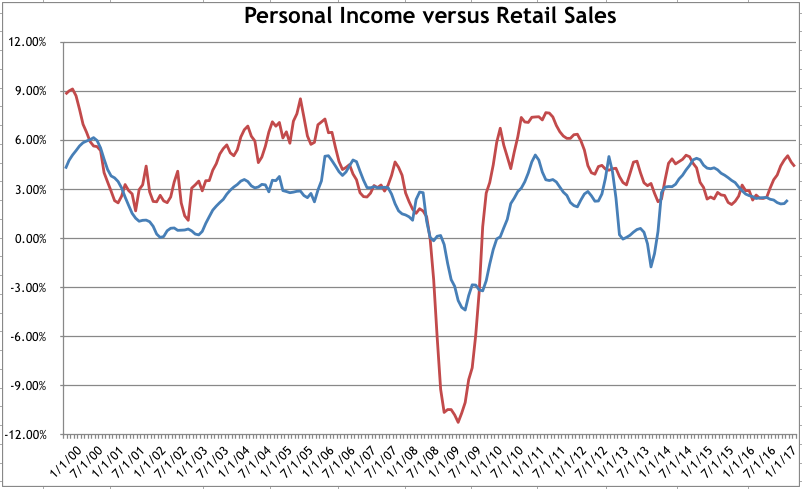The Relationship Between ADHD, Autism, And Intellectual Disability In Adults: A Study

Table of Contents
This study explores the complex relationships between Attention-Deficit/Hyperactivity Disorder (ADHD), Autism Spectrum Disorder (ASD), and Intellectual Disability (ID) in adults. Many individuals present with overlapping symptoms, making accurate diagnosis and appropriate support crucial. We will examine the prevalence of co-occurring conditions, diagnostic challenges, and the implications for effective intervention strategies. Understanding the intricate interplay of these conditions is paramount for improving the lives of affected adults and their families.
Prevalence of Co-occurring Conditions in Adults
The co-occurrence of ADHD, ASD, and ID is significantly higher than would be expected by chance alone, highlighting the need for a nuanced understanding of their interconnectedness.
ADHD and Autism Spectrum Disorder
A considerable overlap exists between ADHD and ASD symptoms. Both conditions can manifest as difficulties with social interaction, communication challenges, and executive dysfunction, including problems with planning, organization, and working memory. This similarity often makes differential diagnosis challenging. The debate continues regarding whether these represent distinct disorders or points along a spectrum of neurodevelopmental differences.
- Higher rates of ADHD diagnosed in individuals with ASD: Many individuals diagnosed with ASD also meet the criteria for ADHD, suggesting a shared underlying neurobiological mechanism.
- Challenges in differentiating inattentive ADHD from ASD symptoms: The inattentive presentation of ADHD can mimic certain aspects of ASD, making accurate distinction difficult without a comprehensive evaluation.
- Importance of comprehensive diagnostic assessment: A thorough assessment involving multiple methods, including clinical interviews, standardized questionnaires, and behavioral observations, is vital for accurate diagnosis.
ADHD and Intellectual Disability
ADHD and ID share common features such as executive functioning deficits, attentional problems, and difficulties with adaptive behaviors. These shared challenges significantly impact daily living, requiring individualized support strategies to maximize independence and quality of life.
- Increased prevalence of ADHD in individuals with ID: Studies indicate a higher prevalence of ADHD among individuals with ID, suggesting a possible shared genetic or environmental etiology.
- Challenges in assessing ADHD in individuals with communication difficulties: Assessing ADHD in individuals with ID and communication impairments requires specialized methods, such as observation-based assessments and caregiver reports.
- Importance of considering adaptive functioning in diagnosis: Adaptive functioning, encompassing daily living skills and social competence, is crucial in diagnosing and understanding the impact of ADHD in individuals with ID.
Autism Spectrum Disorder and Intellectual Disability
A high comorbidity rate exists between ASD and ID. While intellectual abilities vary widely within the autism spectrum, a significant portion of individuals with ASD also meet the criteria for ID. The presence of ID influences symptom presentation and management, requiring tailored approaches to intervention.
- Significant portion of individuals with ASD also have ID: The co-occurrence of ASD and ID is substantial, indicating a complex interplay between genetic and environmental factors.
- Challenges in separating ID-related difficulties from ASD-related difficulties: Distinguishing between difficulties stemming from ID and those specifically related to ASD can be challenging and requires careful clinical judgment.
- Importance of tailored support based on both diagnoses: Intervention plans must address the specific challenges associated with both ASD and ID, maximizing the individual's potential and well-being.
Diagnostic Challenges and Considerations
Accurately diagnosing ADHD, ASD, and ID, particularly when co-occurring, presents significant challenges due to overlapping symptoms. A comprehensive and multidisciplinary approach is essential.
Overlapping Symptoms and Differential Diagnosis
Differentiating between ADHD, ASD, and ID symptoms can be extremely difficult, especially in cases of comorbidity. Careful clinical judgment, standardized assessments, and input from multiple professionals are crucial.
- Importance of detailed clinical interviews: Detailed interviews with the individual and their caregivers provide valuable information regarding developmental history, symptom onset, and functional impact.
- Use of standardized questionnaires and behavioral assessments: Standardized tools such as the ADHD Rating Scale, Autism Diagnostic Observation Schedule (ADOS), and adaptive behavior scales aid in objective assessment.
- Need for input from multiple professionals: Collaboration among psychologists, psychiatrists, educators, and other relevant professionals ensures a comprehensive understanding of the individual's needs.
Impact of Comorbidity on Treatment and Support
The presence of multiple conditions significantly impacts treatment planning. Interventions must address the unique challenges posed by each diagnosis and their interplay.
- Challenges in managing medication side effects with co-occurring conditions: Medication management can be complex when multiple conditions are present, requiring careful monitoring and adjustments.
- Need for comprehensive behavioral interventions: Behavioral therapies targeting specific symptoms related to ADHD, ASD, and ID are essential components of effective intervention.
- Importance of support services for daily living: Access to support services addressing daily living skills, social skills training, and vocational support is crucial for maximizing independence and quality of life.
Implications for Intervention and Support
Effective intervention requires tailored strategies addressing the individual's unique challenges. Collaborative care involving families and professionals is paramount.
Tailored Interventions Based on Individual Needs
Personalized interventions are essential for individuals with co-occurring ADHD, ASD, and ID. These interventions must address the specific needs and challenges of each diagnosis.
- Individualized education programs (IEPs): IEPs are crucial for children and adolescents, adapting educational approaches to meet their unique learning needs.
- Behavioral therapies targeting specific symptoms: Behavioral therapies, such as Applied Behavior Analysis (ABA) and cognitive behavioral therapy (CBT), address specific behavioral challenges.
- Medication management, when appropriate: Medication can be a valuable adjunct to behavioral therapies for managing specific symptoms, but should be used judiciously and monitored closely.
The Role of Family and Support Systems
Family involvement is crucial for successful intervention and ongoing support. Families require education, emotional support, and access to resources.
- Importance of family support groups: Connecting with other families facing similar challenges provides valuable emotional support and practical advice.
- Access to respite care: Respite care offers temporary relief for caregivers, preventing burnout and enhancing the family's overall well-being.
- Advocacy and educational resources: Access to advocacy groups and educational resources empowers families to navigate the complexities of the healthcare and educational systems.
Conclusion
The relationship between ADHD, Autism, and Intellectual Disability in adults is complex and multifaceted, characterized by significant symptom overlap and diagnostic challenges. Accurate diagnosis is paramount for effective intervention, necessitating a comprehensive assessment and a multidisciplinary approach. Tailored interventions, incorporating behavioral therapies, medication management (when appropriate), and robust family support, are essential to improve the quality of life for adults with these co-occurring conditions. Further research into the specific neurobiological underpinnings of these co-occurring conditions is needed to refine diagnostic criteria and develop more targeted and effective treatment strategies. Understanding the nuances of the relationship between ADHD, Autism, and Intellectual Disability is crucial for providing appropriate support and improving outcomes for affected adults. Seek professional evaluation if you suspect you or a loved one may have any of these conditions.

Featured Posts
-
 Police Raid Underground Nightclub Over 100 Immigrants Detained
Apr 29, 2025
Police Raid Underground Nightclub Over 100 Immigrants Detained
Apr 29, 2025 -
 Alan Cummings Scottish Roots A Childhood Reminiscence
Apr 29, 2025
Alan Cummings Scottish Roots A Childhood Reminiscence
Apr 29, 2025 -
 Is Group Support The Key To Effective Adhd Management
Apr 29, 2025
Is Group Support The Key To Effective Adhd Management
Apr 29, 2025 -
 Nyt Spelling Bee March 15 2025 Clues Answers And Pangram
Apr 29, 2025
Nyt Spelling Bee March 15 2025 Clues Answers And Pangram
Apr 29, 2025 -
 Economists Predict Rate Cuts Amidst Weak Retail Sales Data
Apr 29, 2025
Economists Predict Rate Cuts Amidst Weak Retail Sales Data
Apr 29, 2025
Latest Posts
-
 Wnbas Las Vegas Aces Make Roster Cut
May 13, 2025
Wnbas Las Vegas Aces Make Roster Cut
May 13, 2025 -
 Deja Kellys Leadership Oregon Tournament Preview
May 13, 2025
Deja Kellys Leadership Oregon Tournament Preview
May 13, 2025 -
 Las Vegas Aces Release Player Amidst Training Camp Cuts
May 13, 2025
Las Vegas Aces Release Player Amidst Training Camp Cuts
May 13, 2025 -
 Cp Music Productions Experience The Harmony Of A Father Son Duo
May 13, 2025
Cp Music Productions Experience The Harmony Of A Father Son Duo
May 13, 2025 -
 Cp Music Productions Father Son Musical Duo Creates Unique Sounds
May 13, 2025
Cp Music Productions Father Son Musical Duo Creates Unique Sounds
May 13, 2025
